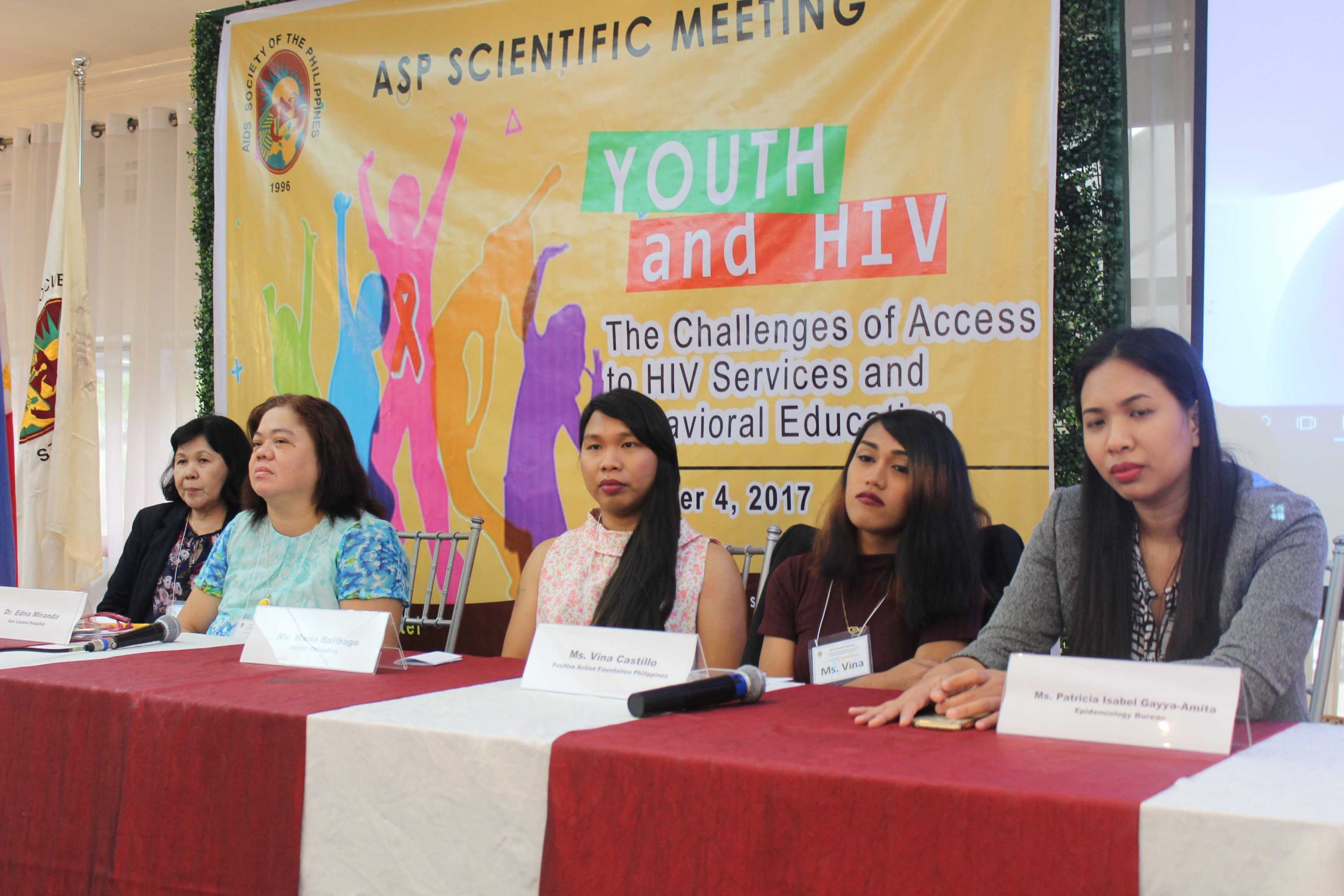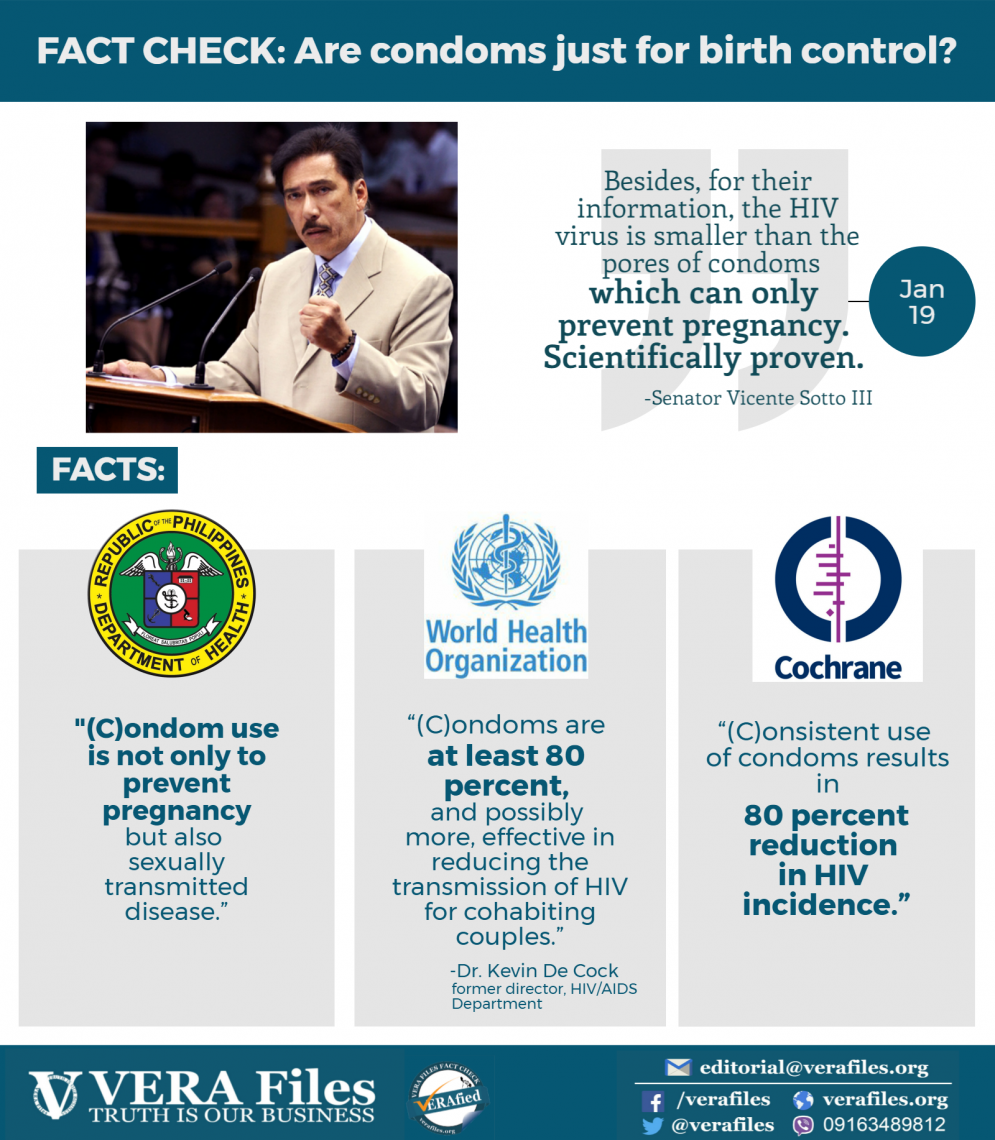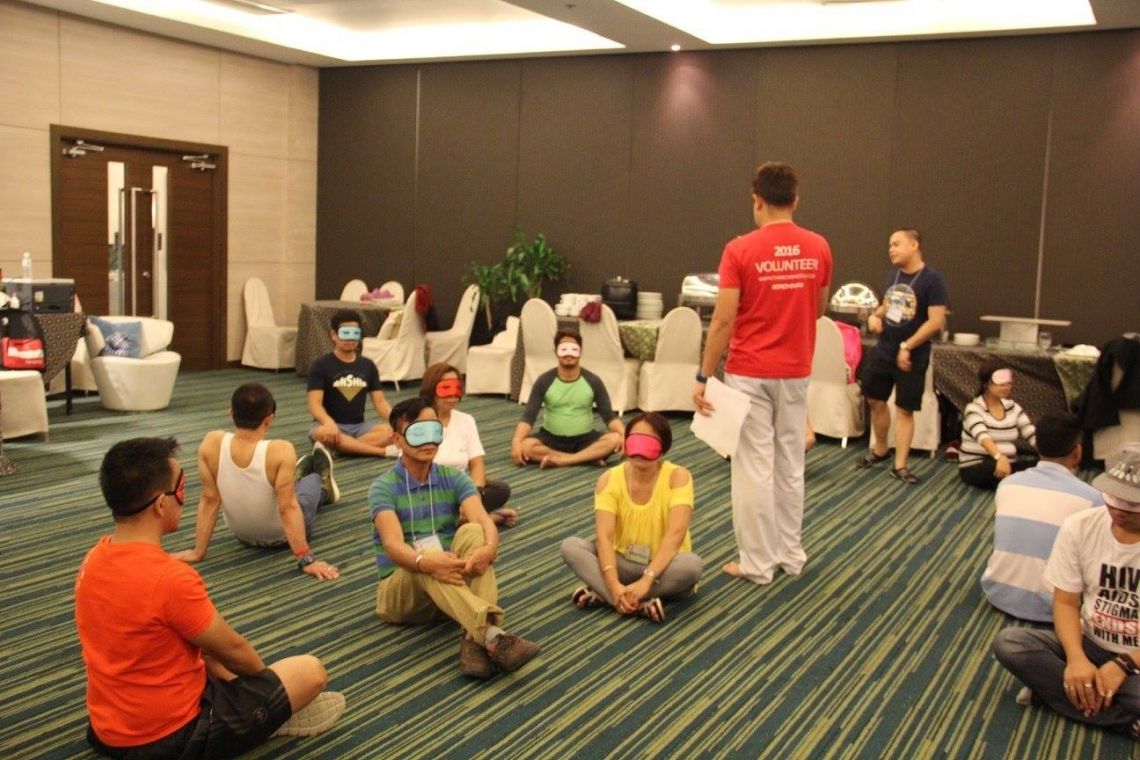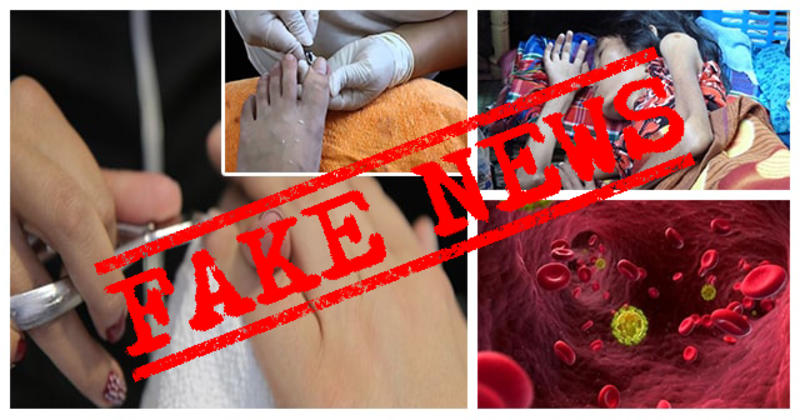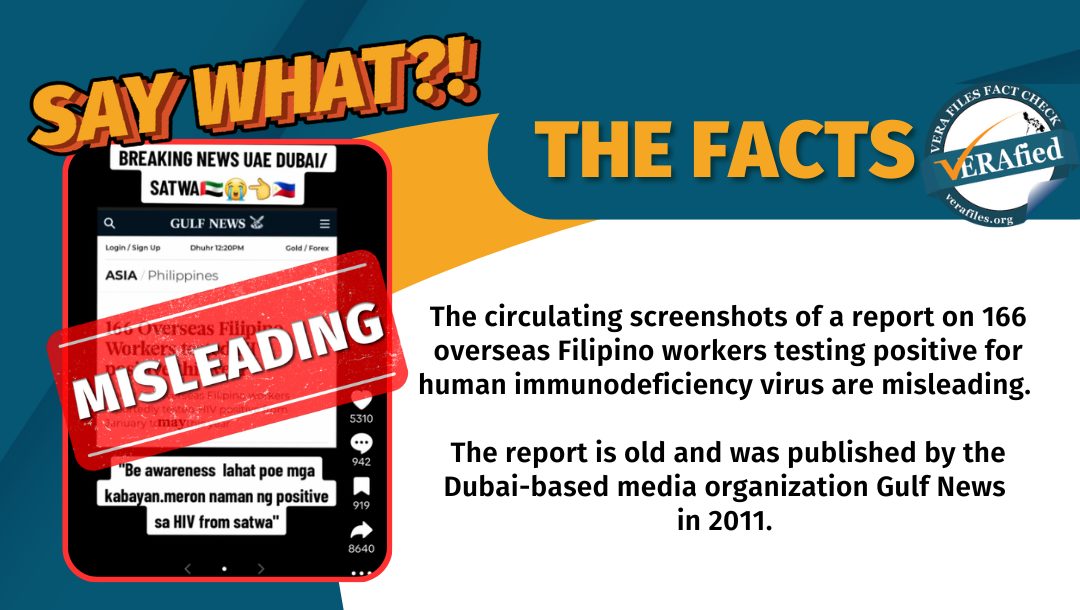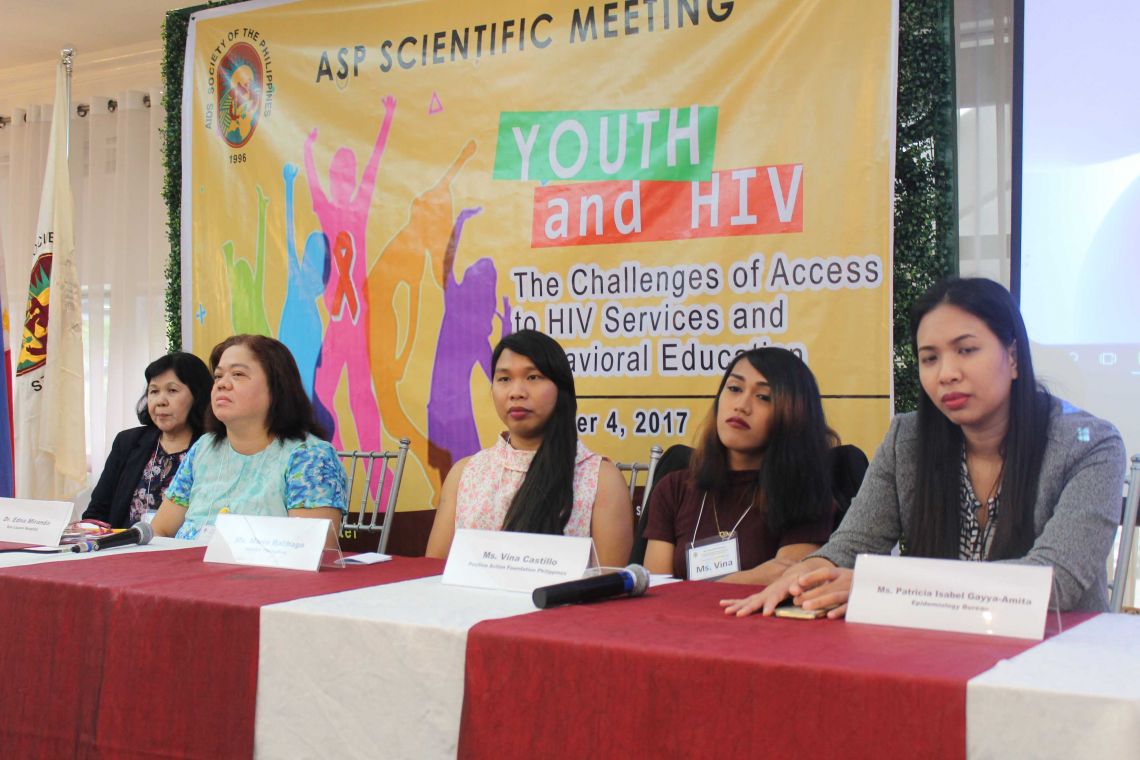
Advocates talk about the growing HIV epidemic in the Philippines.
Three monumental chapters mark Vina Castillo’s life: At 12, when she first had sex; at 16, when she was diagnosed HIV-positive; and at 23, as she now stands before everyone, alive and well.
The transwoman now looks back and laughs it off, but when she first discovered having the human immunodeficiency virus, a mix of fear, shock and anxiety had seized her all at once.
“I was shocked for about three days,” she said in Filipino. “I just kept crying.”
Now, Castillo is far from how she was before. She is healthy and without any hint of the rashes that once blotted her hands and feet, which were also results of her secondary syphilis. She was lucky to have the support of a nonprofit group that helped her get tested, treated, and control her HIV.
Most are not as fortunate. Health advocates say the youth face the greatest risk in the nationwide HIV situation, which has worsened due to social factors that discourage them from acquiring supposedly accessible services.
HIV, a virus that weakens the immune system, is a growing “epidemic” among minors that should end, said Luis Gatmaitan, president of the AIDS Society of the Philippines (ASP), which organized the forum “Youth and HIV: The Challenges of Access to HIV Services and Behavioral Education” on Oct. 4 in Quezon City.
Every day, 30 new persons will turn HIV-positive, Gatmaitan said, citing data from the Department of Health (DOH). “One Filipino youth turns HIV-positive in less than an hour.”
As of May 2017, some 44,010 have been diagnosed HIV-positive, according to the DOH. By 2022, there will be some 86,000 more, of which 70 percent will come from the youth group, HIV surveillance officer Patricia Amita said.
“HIV infection is preventable, and the youth need to be empowered to stop it,” she added. The problem is how.
Risks of HIV infection occur when minors start having sex as early as 12 years old, yet access to services comes much later, Amita said.
Most minors would first use condoms at 18, she added. They would get tested at 22, but the bulk of those infected with HIV would only access treatment six years later, at 28 years old.
“Since adolescents face the same risks as adults, should they not be entitled to equal access to services for testing, prevention, and even treatment?” she said.
Several barriers hinder such treatment, foremost of which are fear and lack of information, said Dr. Edna Miranda of the San Lazaro Hospital, a member of ASP.
A 2015 DOH survey shows that 25 percent of the youth are afraid to get tested, while 21 percent don’t know where to go.
Castillo, who hails from a small barrio in the northern province of La Union, said she would not have known her condition had there been no outreach program in her town when she was 16.
“We need to improve providing knowledge about HIV to reduce the stigma. For so long that there’s stigma, adolescents will find it hard to get tested,” Miranda said. “We should all have several venues, we shouldn’t be passive when it comes to sex.”
But a large problem for minors stems from a legal dilemma, said Mario Balibago of the United Nations Children’s Fund (UNICEF) Philippines.
The Philippine AIDS Prevention and Control Act of 1998 has become a double-edged sword to both help and harm minors, the HIV specialist said. At present, the law requires minors to acquire consent from parents or legal guardians.
“There are cases when the parents are not there to provide that kind of support,” Balibago said.
A 14-year-old pregnant orphan from Quezon City was diagnosed with HIV only two weeks before she gave birth, as screenings had been delayed for months because no legal guardian was available to give consent, shared Balibago.
A barangay captain eventually became the consenting adult. Upon testing, her child turned out HIV-positive, too, and both are under therapy.
“So we’ll wait for her to have a parent to sign. Isn’t that absurd?” Balibago said.
The specialist proposed allowing proxy consent, which authorizes medical professionals or other experts in the field to give consent to minors as young as 15.
“The law keeps everyone not acting on it,” Balibago said, and lamented social workers’ licenses are at stake should they perform HIV tests on a minor without parental consent.
UNICEF is currently discussing with several agencies like DOH to develop the protocol which may amend the law, while social workers are trained in some cities like Pasay and Davao City.
“It should not only be the case that healthcare providers are willing to help,” Balibago said.
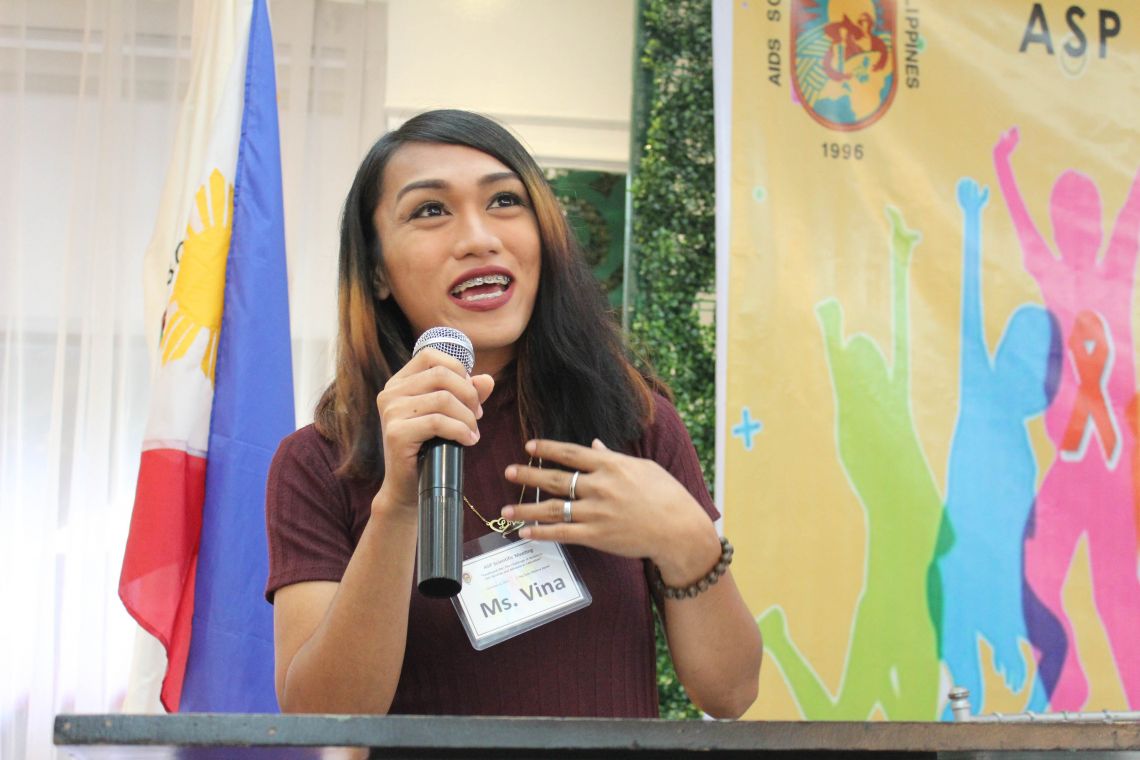
Vina Castillo shares her experience living with HIV.
Castillo remains grateful to the nonprofit Positive Action Foundation Philippine Inc. (PAFPI), the reason she had been tested at all, she said.
When she was screened in August 2011, she said one social worker pushed her to take the test at the risk of his license, Castillo said.
Around the time, wounds were already sprouting from her palms and soles, and Castillo had to confirm what they meant. Although scared the social worker might lose his license, she couldn’t let her parents know out of fear, and there was no other choice.
Her only regret was that she never saw him again. “I’m so thankful to him,” Castillo said.
Indeed, healthcare providers bear a huge burden of taking care of HIV-positive patients, said Dr. Josephine Lumitao, a professor at the University of Santo Tomas.
For that, healthcare providers must practice strict confidentiality with patients, a discipline that is almost easily forgotten. She said only the parents must know of the patient’s condition.
“They would have to support him or her during the time of treatment but nobody else,” she said.
Miranda agreed, adding that breaking confidentiality would be a violation of one’s right, and would potentially delay access to HIV screening, she said.
She lamented stories of clients receiving comments from healthcare providers themselves, such as, “You again?” when they should employ a more endearing approach instead.
At San Lazaro Hospital, Miranda said they take care of kids with HIV, who need so much more than just medical assistance.
They need care, said Miranda, who also takes the kids to enjoy themselves at themed parks.
Christmas is a highlight, too, she said. “We’re very happy. It’s also a way to let them join people they know, so they can open up. This is our approach to the teens.”
Mostly, she lets them draw and scribble down anything on paper as part of their healthcare.
At times, Miranda would be caught off guard with what she reads. One wrote: “Can we survive? Because our parents did not.”
Adolescence is a truly unique phase, she said. “There are a lot of approaches, and there is no hard and fast rule.”
As an adult herself, Castillo works to help people in the same situation as she had been before as a community-based screening motivator in Manila.
She was lucky her parents were accepting. “I was accepted even if I was positive,” she said.
Now a volunteer for PAFPI, she said the only way through it is to be brave and be happy. “I was dying. I was skin and bones,” she recalled how she had been only a year ago.
Today, she stands proud before an audience she is familiar with, speaking from experience and with a newfound mantra.
“I just keep myself light-hearted,” she said, of her HIV condition. “It’s already there. Let’s just accept it. God has plans, let’s just go with it.”
